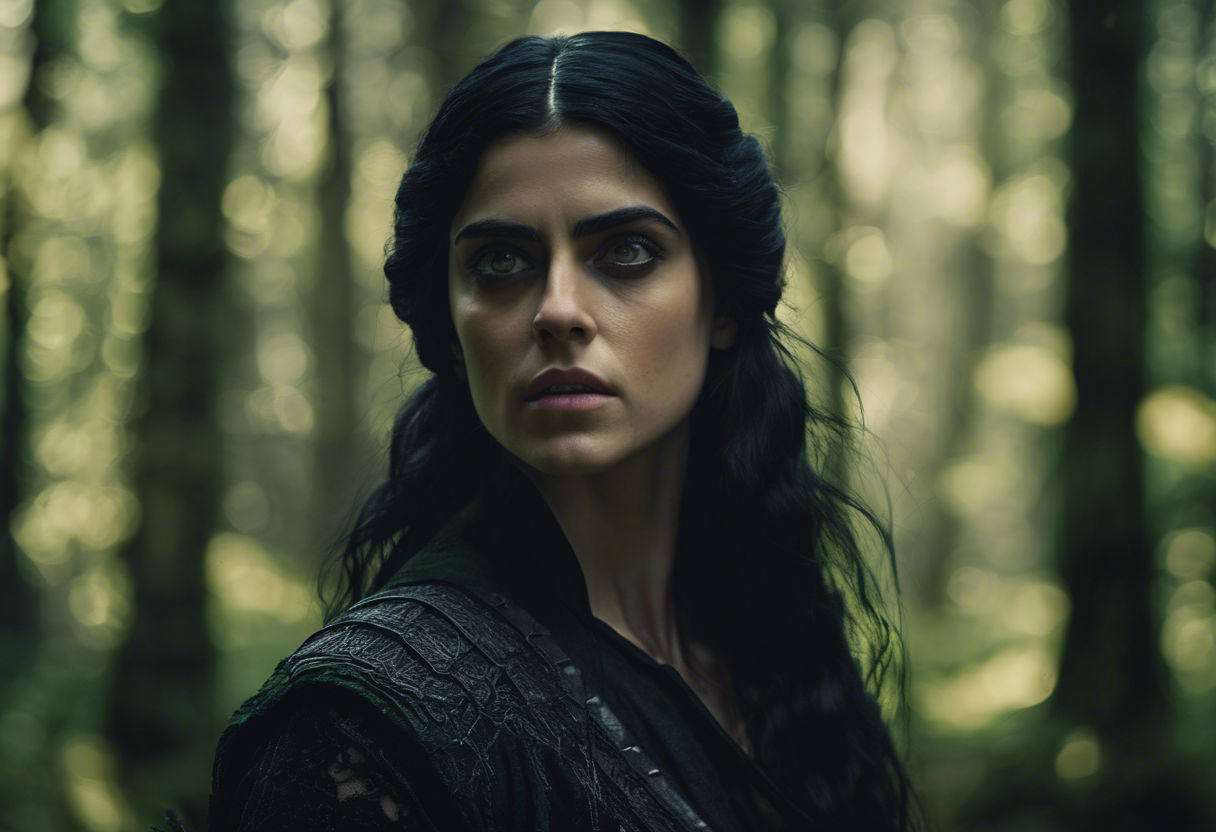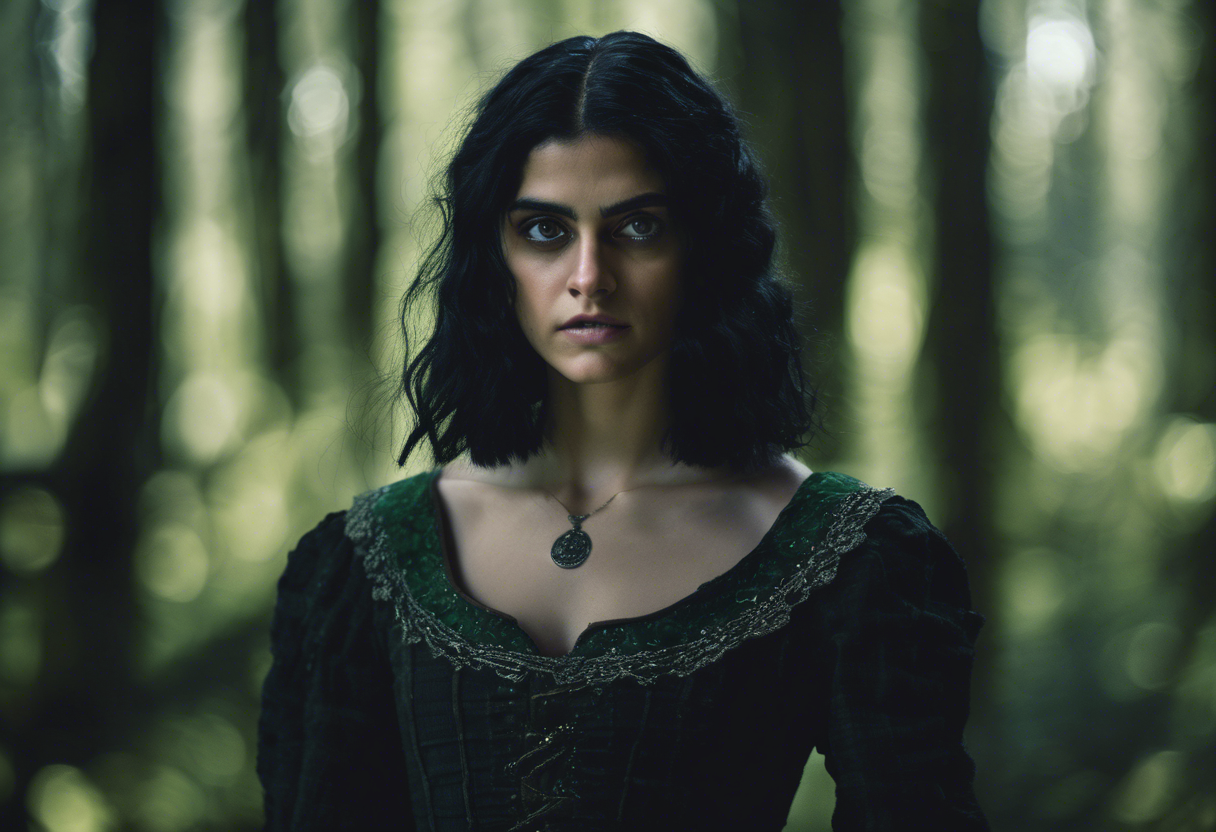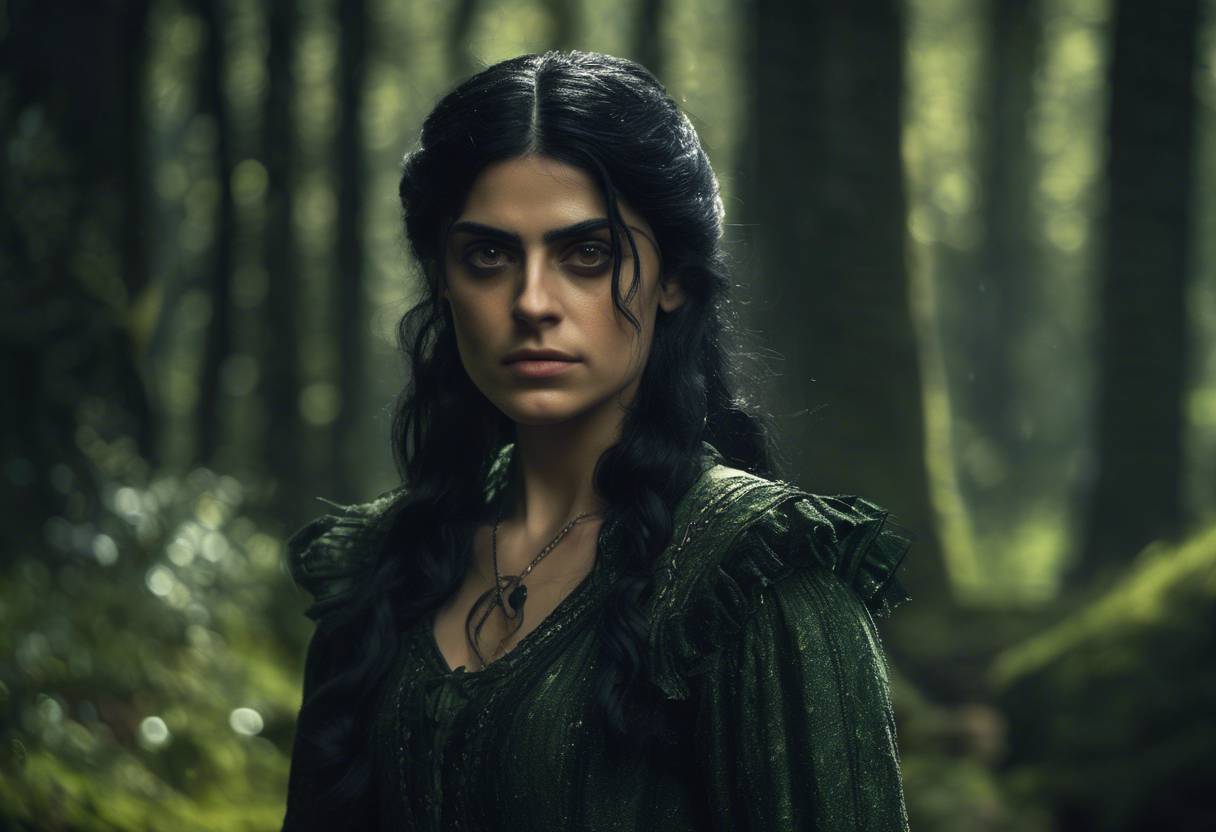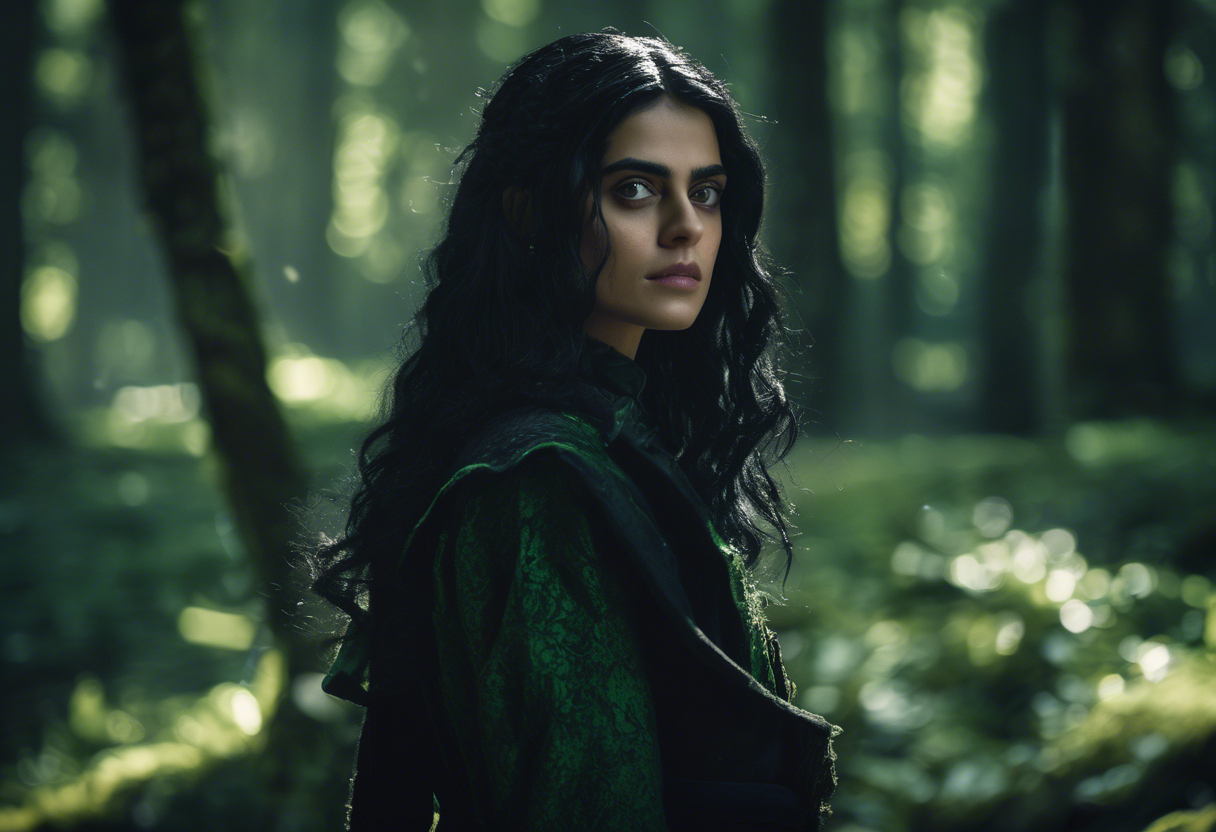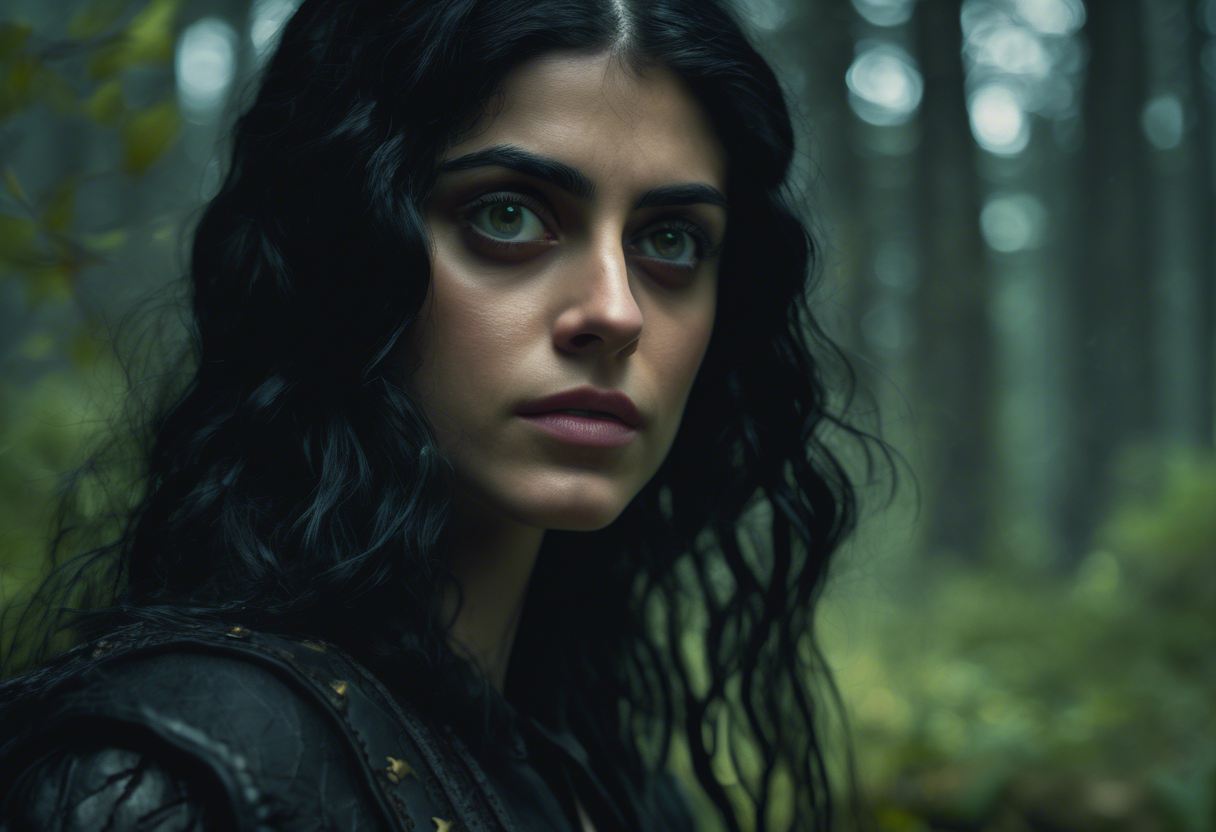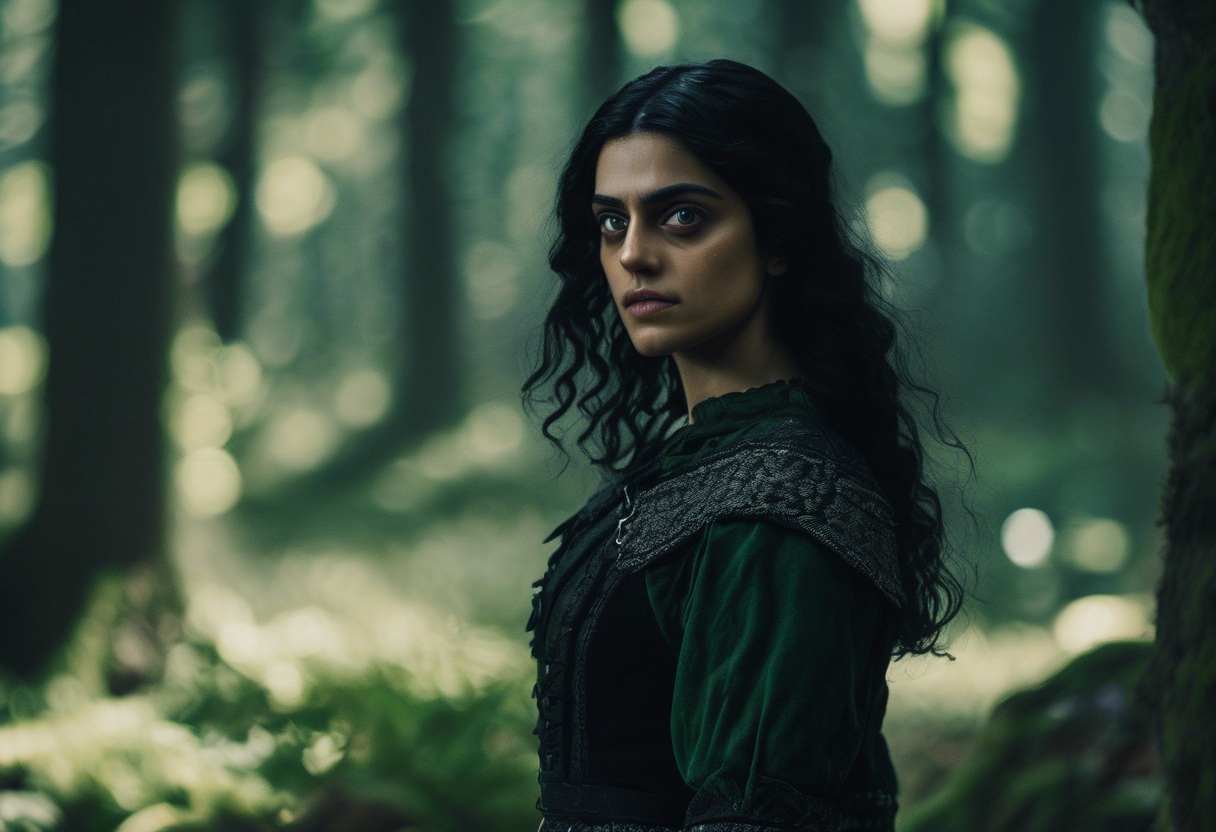Contents
Introduction
Francesca Findabair, portrayed by Mecia Simson in the Netflix series The Witcher, is a complex and pivotal character within the fantasy universe created by Andrzej Sapkowski. As an Elven sorceress, Francesca is renowned for her intelligence, magical prowess, and political acumen, making her a central figure in the narrative.
Originating from the book series, Francesca is the Queen of Dol Blathanna, a realm exclusive to the Aen Seidhe elves. In the Netflix adaptation, she succeeds her husband Filavandrel aén Fidháil as the ruler of the elves after his death [3][4].
Francesca’s backstory is deeply intertwined with her role as a leader and a sorceress. She is driven by a prophetic vision from Ithlinne, a white-robed figure, who foretells that she will lead the Elven race to Dol Blathanna [3].
Her significance in the series extends beyond her individual storyline, as she embodies themes of leadership, vengeance, and the struggle for Elven independence. Francesca’s character also connects to broader literary traditions, particularly in the realm of fantasy and political intrigue, making her a compelling figure in both the books and the Netflix series.
Role in the Series
Francesca Findabair’s storyline in The Witcher Netflix series is marked by several key events and conflicts. She first appears in Season 2, where she is introduced as the wife of Filavandrel and the successor to the throne of the elves after his death [3][4].
One of the most significant plotlines involving Francesca is the Elven baby plot, which is entirely new to the Netflix adaptation and does not appear in the books. In this storyline, Francesca forms an alliance with Nilfgaard to birth a pure Elven child, a plot orchestrated by Fringilla Vigo. However, after giving birth, Francesca’s baby is murdered, leading to a profound change in her character as she seeks vengeance against those she believes are responsible, particularly Redania [3][4].
Francesca’s relationships with other characters are crucial to her development. Her bond with her husband Filavandrel is deeply emotional, and his death at the hands of Tissaia de Vries further fuels her desire for revenge. She also interacts closely with Yennefer and Fringilla, forming alliances and confrontations that shape the political landscape of the series [3][4].
In Season 3, Francesca becomes a central figure in the Elven uprising, targeting Emperor Emhyr and Fringilla in her quest for vengeance. Her journey is also marked by her search for Ciri, who carries the elder blood, and her involvement with Vilgefortz during the Conclave of Mages [3].
Character Analysis
Francesca Findabair’s personality is multifaceted and evolves significantly throughout the series. Initially, she is portrayed as ambitious and compassionate, seeking to lead her people to freedom and independence. However, the murder of her baby and the subsequent grief and anger transform her into a more bitter and vengeful character [2][3].
Her motivations are driven by a mix of personal loss, political ambition, and a deep sense of justice. Francesca’s strength lies in her magical prowess and her ability to make tough decisions, even if they come at a great personal cost. Her flaws include her tendency to let vengeance cloud her judgment and her sometimes ruthless approach to achieving her goals [2][3].
The character development of Francesca is notable for its complexity. She transitions from a character focused on the future of her people to one consumed by personal vendetta. This transformation makes her a compelling and relatable character, as audiences can see the depth of her emotional pain and the moral dilemmas she faces [3].
Themes and Symbolism
Francesca Findabair embodies several key themes in The Witcher series. One of the most prominent is the theme of leadership and the burden that comes with it. As the Queen of the elves, Francesca must balance her personal desires with the needs of her people, often making difficult choices that impact the broader narrative [3][5].
The theme of vengeance is also deeply intertwined with Francesca’s character. Her quest for revenge against those who killed her baby serves as a catalyst for much of the conflict in the series, highlighting the destructive nature of unchecked vengeance and the cyclical violence it can perpetuate [2][3].
Francesca also symbolizes the struggle for identity and independence, particularly for the Elven people. Her prophetic vision and her role in leading the elves to Dol Blathanna represent a broader quest for self-determination and the preservation of Elven culture [3][5].
Cultural Impact
Francesca Findabair has had a significant cultural impact, particularly within the fan community of The Witcher. Her portrayal by Mecia Simson has been well-received, with fans appreciating the depth and complexity brought to the character. The character’s storyline has also sparked discussions about motherhood, loss, and the consequences of vengeance, resonating with audiences on a personal level [1][3].
In adaptations and spin-offs, Francesca’s absence from the video game series has been noted, with many fans advocating for her inclusion in future games to enrich the narrative and world-building of the The Witcher universe [5].
Francesca’s influence on popular culture extends beyond the The Witcher series itself. She represents a strong female leader in a fantasy setting, a trope that is increasingly popular in contemporary media. Her character archetype has the potential to inspire other works and characters in the fantasy genre.
Critical Reception
The critical reception of Francesca Findabair has been generally positive, with praise for Mecia Simson’s performance and the character’s complex storyline. Critics have noted the significant deviations from the book character, particularly in terms of her plotlines and personality, but these changes have also been seen as adding depth to the series [2][3].
Some controversy has arisen regarding the changes to her character from the books, with some fans feeling that the Netflix adaptation strays too far from the original material. However, these changes have also been defended as necessary to adapt the character to the screen and to enhance the overall narrative of the series.
Legacy
Francesca Findabair’s enduring appeal lies in her complexity and the depth of her character. She represents a powerful and nuanced female character in a fantasy world, making her a compelling figure for audiences. Her relevance in contemporary discussions about leadership, vengeance, and identity ensures that she will remain a significant character in the The Witcher universe.
As the series continues, Francesca’s legacy is likely to grow, influencing other characters and storylines within the The Witcher franchise. Her inclusion in potential future adaptations, such as the video game series, could further enrich the narrative and provide new insights into the world of The Witcher.

